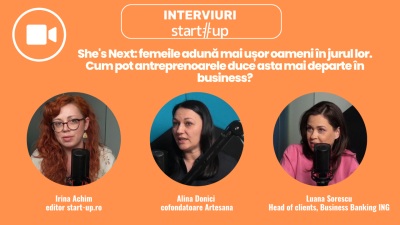Potential investors, he said, will be far more demanding in the months and years to come, paying increasing attention to, for example, quality of earnings, working capital management and internal controls but also quality of management and corporate governance. With investors becoming more and more sophisticated in their acquisition approach, sellers will also need to learn how to prepare and present themselves in order to maximize shareholder value.
“We advice our clients to re-evaluate assets, because values of a few months ago, might not necessarily be reflecting current market values,” Ioannides stressed.
According to Ioannides, from now on cash flow, working capital management, reporting and forecasting processes will be the focus of attention.
“Business strategies will need to focus on operational excellence. All the above will make the selling of a business a far more complex and demanding process, whereby, sound and experienced advisors will be essential”, he continued.
Currently, the private equity funds are very reluctant to equity only deals, except when the deals have a profitable in terms of price. The activity of private equity funds has been extremely narrowed in the past few years, for several reasons, the most important being the too-high expectations of vendors. On short term, we will see a new upsurge of investments conducted by private equity funds, only when the evaluations of Romanian entrepreneurs will be attuned”, Ioannides told Wall-Street.
As a result, vendor preparation (vendor assistance) will have to be thoroughly planned and effectively implemented by sellers, providing prospective investors with full visibility of value drivers of their business, enabling them to make fully informed decisions, while deriving maximum value for the current shareholders.
Private equity players pinpointed three key reasons for the current slowdown as uncertainty in the markets, limited funding and time needed for sellers to adjust to new multiples and expectations. Market players currently face concerns about the gap between the point when buyers are legally committed and when ultimate payment of money takes place.
After an all time high in 2007, Deloitte’s Central European Private Equity Confidence Index has reached a low point. However, Central Europe is still expected to continue to be one of the key focus points for many PE funds.
“Despite the hopes of some a few months ago, Private Equity activity and sentiment in Central Europe has reached a five year low point in line with other global markets and lack of liquidity in the banking market”, said Garret Byrne (photo) , M&A Transactions Services leader for Deloitte in Central Europe.
Some private equity funds are sitting on the sidelines while others are prepared to do equity only deals and wait for the debt market to come back for refinancing. Portfolio management is now a key focus.
Despite the overall current lack of optimism and cautiousness, private equity sees Central Europe positively as one of the regions which will be less hit by a global economic downturn. “Many private equity professionals in Central Europe see the current environment as a great opportunity and believe that seeds sown in 2009 may reap great rewards,” added Byrne. The corollary of this of course is that seeds sown in 2008 may need constant nourishing in order for them to flourish. This is confirmed by the findings of Deloitte's latest Central European Private Equity Confidence Survey.
Signs of distress are seen and felt in virtually all aspects of leading economies. Hopes for quick recovery are tampered by locked credits and a stagnant interbank market. Unprecedented volatility in international equity markets forced European equities to reach new lows.
Despite the completely changed M&A landscape, positioning of leading PE funds in Central Europe is still strong with funds available to invest, however largely in a stand-by mode waiting for entry multiples and seller expectations to curtail and for the debt markets to come back.
On a brighter note, Byrne continued, historically in downturns there are more opportunities to create value for players who have available funds and can enter the market of low valuations and forced sales where cash is king. Strong companies may face a once in a life time opportunity to secure dominant market share at reasonable pricing levels.
Corporate divestitures are expected to be a hot topic in the near future, while many large troubled groups will aim to divest non-core assets at potentially lucrative prices. The majority of deals should fall into the mid-market deal size range.
“The current PE model may have to adapt, or rather step back, to the model used in the early 2000’s - buying at comparatively low multiples, focusing on improving operations, bringing in expertise, realising synergies and selling on again, rather than relying on a leverage based model,” said Byrne.
To a large extent, this correlates with the overall shift of investor focus from new acquisitions to portfolio management, which will require more managerial and industry expert skills to survive the storm in the short run.
Once reasonable confidence in the markets is re-established, M&A track will be gained again. One can expect deeper investigation of the potential deals with a focus on robust financial and commercial due diligence, and a going back to fundamentals when valuing targets.
M&A market: Trends and perspectives in Central and Eastern Europe
Economic Climate
Signs of concern over economic climate expressed six months ago converged to zero improvement expectations in the short-term. 92% of respondents expect the overall economic climate to decline.
Debt Availability
Swing in expectations regarding debt availability which was clearly visible during last year has come to haunt the CE market worse than ever with limited debt available at increasing margins.
Investors´ Focus
Participants focus on portfolio management with new investments left as second priority - a flashback to early 2003.
Size of Transaction
Remaining market activity is expected in small to mid-market deals with anticipated growth potential to be realised during coming periods. Small-cap deals with low levels of leverage seem to be the order of the day.
Market Activity
The M&A market is largely in suspense in the short term, with speculation regarding recovery in Q2 or Q3 of 2009.
Investment Efficiency
Notable change in participant investment efficiency in short term is expected compared to previous periods. 40% of respondents expect performance of their financial investments to decline, while only 6 months ago not a single respondent responded pessimistically.
Investors´ Activities
Unsurprisingly, given current valuation levels, PE funds expect to be net buyers. Search for new and add-on investments at lower multiples prevail with the expectation that seeds sown in 2009 may lead to great rewards.
New Investments Competition
Market leaders and less affected high potential mid-market targets are expected to steal the investment interest spotlight in short term.
Raising of new funds
The fund raising environment for general partners will be very tough and will favour established players with good track records.
New Investments Competition
Survey participants expect competition to tighten in the short term. The fight is likely to concentrate around the less affected small and mid-market targets with growth potential and clear sector/market leaders, which are expected to keep their stronghold.
Citeste si:
Calculator Salariu: Află câți bani primești în mână în funcție de salariul brut »
Te-ar putea interesa și:


















































































![HR [PLAY] Tech Workout - 11...](https://www.wall-street.ro/image_thumbs/thumbs/973/973fe0a3888d417feff63de42e814180-260x260-00-65.jpg?v=1713878583)









